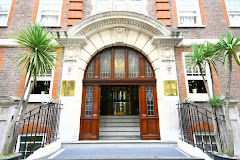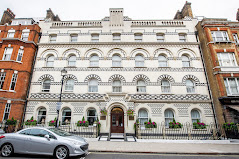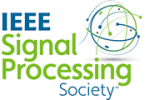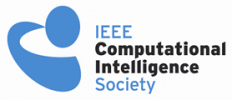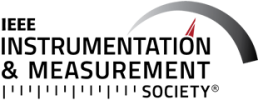About
The IEEE 14th International Conference on Pattern Recognition Systems (ICPRS) is an annual international event that follows ICPRS-23, ICPRS-22, ICPRS-21, ICPRS-19, ICPRS-18, ICPRS-17 and ICPRS-16, a continuation of the successful Chilean Conference on Pattern Recognition that reached its 6th edition in 2014. In 2024 it is organised by the University of Westminster (UK) and the Chilean Association for Pattern Recognition (ACHiRP, a member of the IAPR), endorsed by the IAPR and co-sponsored by four chapters of the IEEE UK+Ireland Section (Signal Processing, Circuits & Systems, Computational Intelligence and Instrumentation & Measurements chapters) and the IET Vision & Imaging Technical Network. As per previous years, papers deemed to be of the required standard AND presented at the conference will be published by the IEEE and indexed in IEEE Xplore. Please note that the publishers might reject papers which are too similar to previous publications, even if the work is presented at the conference. All paper need to be submitted via Conftool to be peer-reviewed (double-blind) by an international panel of experts.The IEEE International Conference on Pattern Recognition Systems (ICPRS-24) aims to create an important networking forum in which participants can discuss the present and future of pattern recognition systems.
Its predecessors ICPRS-23, ICPRS-22, ICPRS-21, ICPRS-19, ICPRS-18, ICPRS-17, ICPRS-16, CWPR and CCPR, have traditionally been a meeting point of different disciplines (computer science, engineering, mathematics, machine learning, etc.) and an opportunity for a wide range of researchers and practitioners to discuss the many different aspects of the application of pattern recognition technologies.
Where
A 100% in-person event, hosted by the University of Westminster, London, UKWhen
Monday to Thursday
15-18 July, 2024
Call For Papers
We also welcome "Datasets Papers" that introduce a new public dataset and a baseline to encourage new lines of research.
This conference will be a 100% in-person event.
There will be a special category of "Student Papers", where the first author must be a student (undergraduate or postgraduate). There will be a special prize for best student paper.
All paper submissions will be submitted on-line to be peer-reviewed by an international panel of experts. Please note that all papers will be checked by a plagiarism detecting software so that papers that exceed a threshold of coincidence will not be passed on for reviews.
Also please note that reviews will be double-blind so please do not include author names and affiliations in your paper (also do not cite your previous work as "in our previous paper [x]", etc.).
There is an A4 pdf version of the conference call for papers as well as an A3 size version and an A2 size version, suitable for printing and displaying on announcement boards! :-)
Prospective authors are invited to submit full papers describing novel and previously unpublished results on all aspects of Pattern Recognition Systems, from academia, industry, NGOs and others, to be selected for oral presentations or posters, on topics including, but not limited to:
- Artificial Intelligence Techniques in Pattern Recognition
- Bioinformatics Clustering
- Biometrics (including face recognition)
- Computer Vision
- Dataset: a new public dataset and baseline
- Data Mining and Big Data
- Deep Learning and Neural Networks for Pattern Recognition
- Document Processing and Recognition
- Fuzzy and Hybrid Techniques in PR
- High Performance Computing for Pattern Recognition
- Image Processing and Analysis
- Kernel Machines
- Mathematical Morphology
- Mathematical Theory of Pattern Recognition
- Medical Image Processing and Analysis
- Natural Language Processing and Recognition
- Object Detection, Tracking and Recognition
- Pattern Recognition Principles
- Pattern Recognition for optimization
- Real Systems, Applications and Case Studies of Pattern Recognition (e.g. health, environment, weather prediction,natural disasters, transportation, etc.)
- Robotics
- Remote Sensing
- Shape and Texture Analysis
- Signal Processing and Analysis
- Social Media and HCI
- Signal Processing and Analysis
- Statistical Pattern Recognition
- Syntactical and Structural Pattern Recognition
- Time series prediction
- Voice and Speech Recognition
IMPORTANT DATES:
- Paper submissions:
620th March '24 (23:59 GMT) FINAL DEADLINE - Notification of acceptance: 25th April '24
- Camera-ready papers:
1825th May '24 - Early Registration: 10th June '24
Submissions
- Paper format: IEEE Conference, up to 6 pages + 1 page for references (additional pages will incur additional costs)
- It is strongly recommended to use Latex (e.g. Overleaf)
- Papers must be written in English.
- To submit a paper, please click here. If you have not yet done so, you will need to create an account (if you participated in ICPRS-23 you might already have an account). PLEASE NOTE that the special "Student Paper" category requires the first author to be a registered student at the time of submission, otherwise use the normal paper category.
- Please note that an accepted paper will only be sent to the publishers if at least one of its authors registers at a normal full author (not student) delegate fee
Keynote Speakers
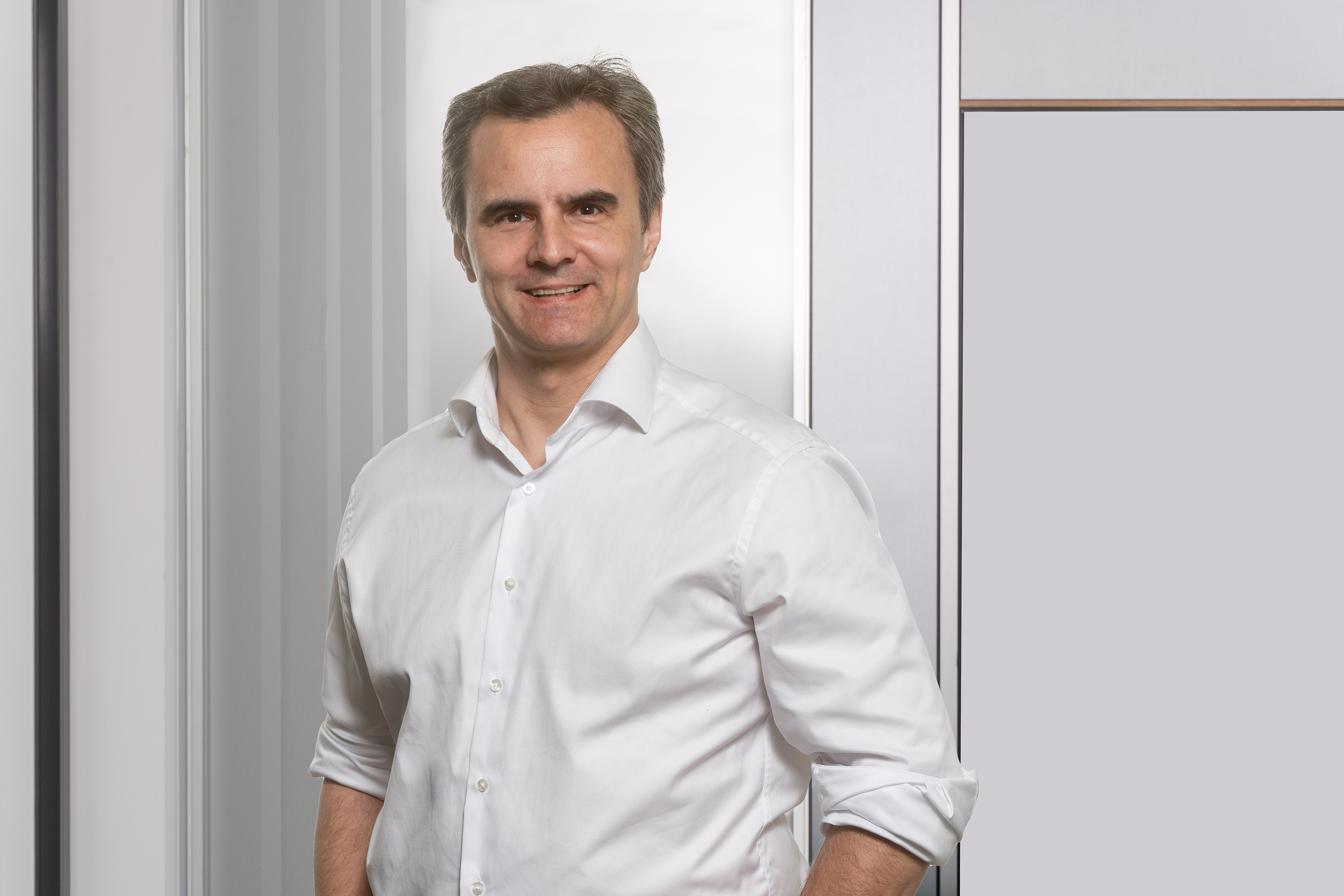
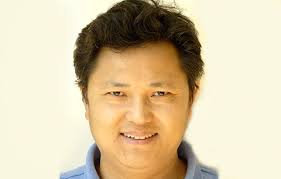
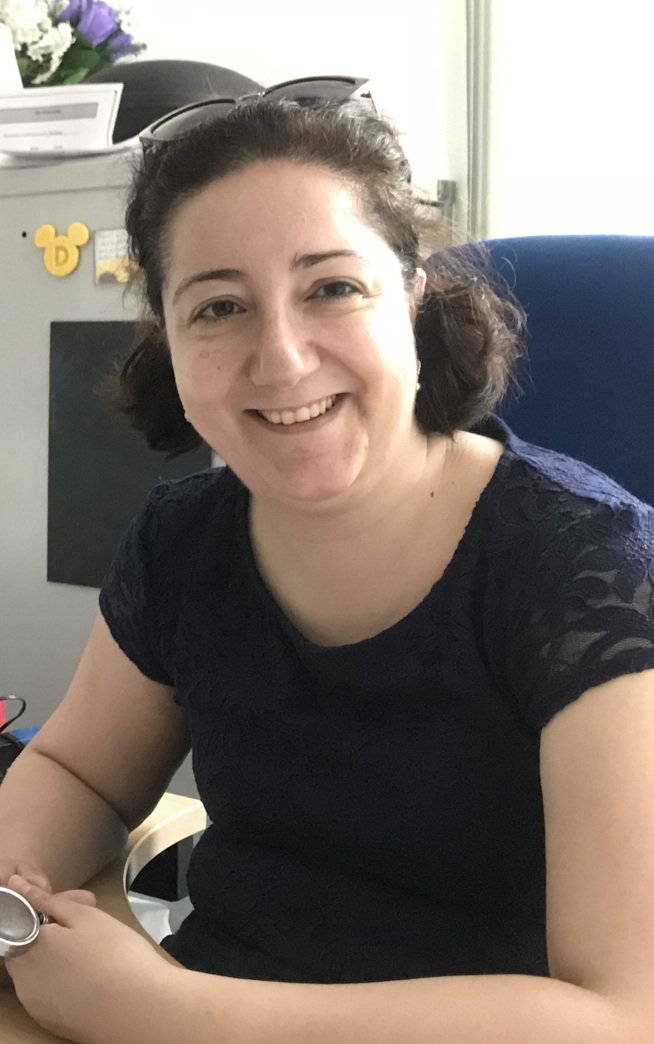
Prof. Dima Damen
University of Bristol, UK
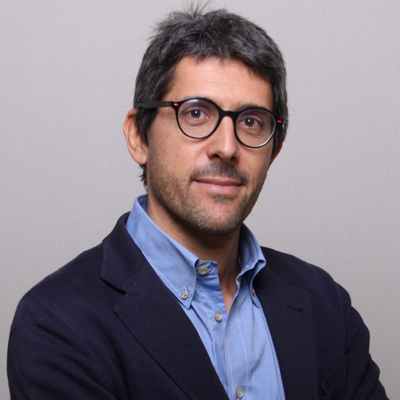
Prof. Paolo Soda
University Campus Bio-Medico di Roma, IT
Workshops
- Workshop 1 - Generative AI: generating images using AI (15th July, 10:00-12:00 )
- Workshop 2 – Reinforcement Learning for image analysis (15th July, 14:00-16:30)
Workshop 1 - Generative AI: generating images using AI
Date: 15th July 10:00-12:00
Description
Generative Artificial Intelligence (genAI) is rapidly advancing in many fields such as image processing, medical imaging, music, arts, etc. In this workshop, you will be introduced to the concept of genAI and to the different models currently available to generate new imaging data. This is a hands-on workshop where you will gain experience in implementing and using a generative neural network to generate small synthetic datasets using Python. You do not require experience in TensorFlow or neural networks to attend the workshop, but experience in Python programming is recommended.
Objectives
- Gain a comprehensive understanding of the principles behind generative AI and its applications in image synthesis.
- Acquire practical skills using generative AI tools for creating synthetic images.
- Explore various techniques and methodologies for enhancing the quality and diversity of generated images.
- Experiment with different parameters and settings within generative AI models.
- Collaborate with peers in hands-on activities and projects to apply generative AI techniques to real-world scenarios and challenges.
- Python
- TensorFlow
- NumPy
- Matplotlib
- Jupyter Notebook
- Google Collaboratory
Workshop 2 – Reinforcement Learning for image analysis
Date: 15th July 14:00-16:00 Description
Reinforcement Learning (RL) has gained significant attention in the field of machine learning for its ability to train agents to make sequential decisions through interaction with an environment. In this workshop, you will be introduced to the concept of reinforcement learning and techniques specifically for image analysis tasks. You will explore the fundamentals of RL and work on practical implementations through hands-on activities and case studies. You do not require experience in TensorFlow or neural networks to attend the workshop, but experience in Python programming is recommended.
Objectives
- Understand the basics of reinforcement learning and its relevance to image analysis and processing.
- Explore different RL algorithms suitable for image analysis tasks.
- Learn how to formulate a problem as a reinforcement learning task, including defining states, actions, rewards, and the environment.
- Gain insights into best practices for training RL agents, including data pre-processing, network architecture selection and hyperparameter tuning.
- Collaborate with peers in hands-on activities and projects to apply RL techniques to real-world image analysis challenges.
- Python
- PyTorch
- NumPy
- Matplotlib
- Jupyter Notebook
- Google Collaboratory
Programme
You can browse the conference program (opens in a new tab) or download the PDF here. Please note that the program is subject to small changes due to operational reasons
Registration
All authors of accepted papers and all other attendees, will need to register through this EventBrite link (please note that there is an extra administration charge by EventBrite). The Eventbrite system that we use should be able to give you a receipt and an invoice (provided that you also enter your organisation's details and tax reference number). NOTE: The system only accepts payments via all major credit cards. Please contact one of the Local Chairs for any issues with registration.
For an accepted paper to be presented and published, it needs to be associated to an "Author Full Fee" registration (and not to a Student or an Other registration). If only a student author is attending the conference and presenting their paper, then they need to pay an "Author full fee" (and not the student fee). We have to operate like this to cover conference and publishing costs. Also, if one of the authors registers as "Author Full Fee", additional authors of the same paper who also want to attend the conference only need to pay a lower fee e.g. as Student or Other, as appropriate to their status. Following IAPR policy, each author full fee registration will cover the presentation of up to three papers by the registered person who also needs to be a co-author of those papers. Presentation of additional papers beyond those three, by the same conference delegate will require the payment of an additional full author fee. In all cases there are reductions for members of the sponsoring organisations.
The fee structure will be as follows (all fees are given and charged in pound sterling (GBP) and include attendance to the workshops):
| Category (*) | Early Bird Fee (until 31 May 2024) |
Standard Fee (until 27 June 2024) |
Late Fee (from 28 June 2024) |
|---|---|---|---|
| Author member Full Fee (IEEE/IAPR/ACHIRP/IET) | 340 | 430 | 480 |
| Author non-member Full Fee | 380 | 460 | 520 |
| Student member (IEEE/IAPR/ACHIRP/IET) | 120 | 140 | 160 |
| Student non-member | 160 | 210 | 240 | Other member (IEEE/IAPR/ACHIRP/IET) | 150 | 240 | 310 |
| Other Non-Member | 200 | 270 | 320 |
| Additional page | 25 | 30 | 40 |
For registration only to Workshops (*) |
|
|---|---|
| IEEE/IAPR/ACHIRP/IET Student member | 30 |
| Student non-member | 40 |
| IEEE/IAPR/ACHIRP member | 50 |
| Professional non-member | 80 |
Accommodation
The conference will take place at the Cavendish Street Campus, University of Westminster, Central London, a city with excellent public transport and an extensive range of hotels. If you are using hotel booking sites, you could start by specifying the location as Fitzrovia in London.
There are a number of hotels in close proximity to the University of Westminster’s Cavendish Street Campus, including:
Self-Catering
For those attendees looking for an alternative to staying in a hotel, a number of options are available via Airbnb. Whilst the University of Westminster do not specifically recommend this, it offers a number of more cost effective options for those on a budget.During the Summer recess, the University’s Marylebone Halls of Residence is located a couple of minutes’ walk from Baker Street Station, and offer self catering apartments with shared facilities. Accommodation is booked via Speedybooker
Organisers
Local Chairs
Dr. Anastasia Angelopoulou (University of Westminster, UK)Prof. Thierry Chaussalet (University of Westminster, UK)
General Chairs
Dr. Cesar Astudillo (Universidad de Talca, Chile)
Prof. Sergio A. Velastin (Queen Mary University of London, UK
Universidad Carllos III, Madrid, Spain)
Workshops/Keynotes Chairs
Dr. Ester Bonmati Coll (University of Westminster, UK)Dr. Barbara Villarini (University of Westminster, UK)
IEEE Liaison Chair
Dr. Saumya Reni (University of Westminster/IEEE, UK)
Regional Chairs
Dr. Márjory Da Costa Abreu (Sheffield-Hallam University, UK)Dr. Gustavo Fernández (Austrian Institute of Technology, Austria)
Prof. José García-Rodríguez (Universidad de Alicante, Spain)
Prof. Wilson Rivera (Universidad de Puerto Rico, Puerto Rico)
Dr. Matilde Santos (Universidad Complutense de Madrid, Spain)
Dr. Clovis Tauber (UMR U1253 iBrain, Univ. Tours, Inserm, Fance)
Dr. Maria Trujillo (Universidad del Valle, Colombia)
Dr. Vinay Kumar Venkataramana (IVIS Labs, India)
Prof. Qiao Wang (Southeast University, PR China)
Prof. M. Haroon Yousaf (University of Engineering and Technology Taxila, Pakistan)
Programme Committee
Prof. Lynn Abbott (Virginia Tech, USA)Dr. Eduardo Aguilar (Universidad Católica del Norte, Chile)
Dr. Mohammed Yahya Alghamdi (Albaha University, Saudi Arabia)
Dr. Amel Tuama Alhussainy (Northern Technical University, Iraq)
Prof. Hasan Aljabbouli (New York University, USA)
Dr. Hector Allende (Pontificia Universidad Catolica de Valparaiso, Chile)
Ripudaman Singh Arora (Blue River Technology, John Deere, USA)
Dr. Juan Bekios-Calfa (Universidad Católica del Norte, Chile)
Dr. Jose Bernal (DZNE, Germany)
Prof. Marie Beurton-Aimar (University Bordeaux, France)
Prof. Larbi Boubchir (University of Paris 8, France)
Prof. John William Branch (Universidad Nacional de Colombia, Colombia)
Dr. Maria Elena Buemi (Universidad de Buenos Aires, Argentina)
Deisy Chavez (Universidad de Leon, Spain)
Ricardo Contreras (Universidad de Concepción, Chile)
Dr. Ing. Stefania Cristina (University of Malta, Malta)
Prof. Johan Debayle (Ecole Nationale Supérieure des Mines de Saint-Étienne, France)
Dr. Varuna De Silva (Loughborough University London, UK)
Dr. Jose Delpiano (Universidad de los Andes, Chile)
Dr. Mohit Dua (National Institute of Technology Kurukshetra, India)
Dr. Jorge Espinosa-Oviedo (Politécnico Colombiano Jaime Isaza Cadavid, Colombia)
Dr. Ernesto Fabregas (UNED-Madrid, Spain)
Dr. Gonzalo Farías (Pontificia Universidad Católica de Valparaíso, Chile)
Prof. Alejandro C. Frery (Victoria University, New Zealand)
Dr. Mayssa Frikha (University of Sfax, Tunisia)
Dr. Thierry Garcia (INP Toulouse, France)
Dr. Walter Gomez (Universidad de la Frontera, Chile)
Dr. Yuanlin Gu (University of Stirling, UK)
Dr. Oscar Alberto Henao Gallo (Technical University of Pereira, Colombia)
Dr. Ruber Hernández García (Universitad Católica del Maule, Chile)
Dr. Jose Luis Jara (University of Santiago de Chile, Chile)
Prof. Monica Karel Huerta (IEEE/Universidad Politécnica Salesiana, Ecuador)
Dr. Louahdi Khoudour (CEREMA, France)
Dr. Zheng Li (Stockton University, USA)
Dr. Nguyen Anh Minh Mai (Valeo, France)
Prof. Dimitrios Makris (Kingston University, UK)
Prof. Antoine Manzanera (ENSTA ParisTech, France)
Dr. Lucio Marcenaro (University of Genova, Italy)
Prof. Stephen Marshall (University of Strathclyde, UK)
Dr. Jose Fco Martinez Trinidad (Instituto Nacional de Astrofísica Óptica y Electrónica , Mexico)
Prof. José M. Martínez (Universidad Autónoma de Madrid, Spain)
Dr. Jesus Martínez del Rincón (Queen University Belfast, UK)
Prof. Heber Ivan Mejia Cabrera (Universidad Señor de Sipán, Peru)
Prof. Vladimir Milián Núñez (Universidad de las Ciencias Informáticas, Cuba)
Dr. Miguel Moctezuma-Flores (Universidad Nacional de Mexico, Mexico)
Prof. Jose Manuel Molina (Universidad Carlos III de Madrid, Spain)
Prof. Agustin Moreno (National University of Colombia, Colombia)
Dr. Sebastian Moreno (Universidad Adolfo Ibáñez, Chile)
Dr. Sandrine Mouysset (University of Tours, France)
Prof. Jean-Claude Ngatchou (New Jersey City University, USA)
Dr. Thanh Phuong Nguyen (University of Toulon, France)
Dr Nudrat Nida (Bahria University, Pakistan)
Prof. Mark Nixon (Southampton University, UK)
Prof. João Paulo Papa (São Paulo State University, Brazil)
Dr. Bhagath Parabattina (Lakireddy Bali Reddy College of Engineering Mylavaram, India
Dr. Sangho Park (Central Conneticut State University, USA)
Prof. Helio Pedrini (University of Campinas, Brazil)
M. Angélica Pinninghoff J. (Universidad de Concepcion, Chile)
Dr. Nicolas Ragot (Université de Tours/ LIFAT, France)
M. Ahmed Raza (University of Edinburgh, UK)
Miguel Andres Realpe Robalino (ESPOL, Ecuador)
Prof. Johnny Rengifo (Universidad Técnica Federico Santa Maria, Chile)
Dr. Alejandro Restrepo (Universidad Nacional de Colombia (Medellin), Colombia)
Dr. Eraldo Ribeiro (Florida Institute of Technology, USA)
Dr. Josué Manuel Rivera Velázquez (CEREMA, France)
Dr. Santanu Roy (Manipal University Jaipur, India)
Dr. Bhuvendhraa Rudrusamy (Heriot-Watt University, Malaysia)
Prof. Rodrigo J. Salas Fuentes (Universidad de Valparaiso, Chile)
Dr. César San Martín (Universidad de la Frontera, Chile
Prof. Angel Sappa (Computer Vision Center/ESPOL, Spain/Ecuador)
Dr. Domenico Sorrenti (Universita di Milano - Bicocca, Italy)
Prof. Pierre Spiteri (INP Toulouse, France)
Dr. Patricia Suarez (ESPOL, Ecuador)
Prof. Jinshan Tang (Michigan Technological University, USA)
Prof. Nicolas Torres (Universidad Técnica Federico Santa María, Chile)
Dr. Vinay Kumar Venkataramana (Ivis Labs PVT Ltd., India)
Prof. Boris Vintimilla (ESPOL, Ecuador)
Dr. Pablo Zegers (Aparnix, Chile)
Frequently Asked Questions
-
I have a paper accepted but require an invitation to arrange my trip to London
Please contact the conference Local Chair (Dr Angeloupoulou) so that she can arrange to send you an invitation letter.
-
Will the event will be online?
No. We expect this to be a full in-person event. We invite researchers worldwide to submit their novel articles.
-
Is there any facility for students to submit articles?
Students are encouraged to submit papers. If they are the first author they can be submitted as "Regular Student Paper" and would be considered for a special prize. The paper would still need to be associated to a registration as an Author Full Fee. For details about the registration fees, please check the Registration section
-
Do I have to pay extra if I have more than one paper accepted?
Please refer to the Registration section for the detailed fee conditions.
-
Will all accepted papers be indexed in Scopus and others?
As in previous versions of the conference, we expect that the papers will be indexed in Scopus, Xplore and others. Please note that only papers that are accepted AND presented AND associated to a delegate fee, will be sent to the publisher. It is very important that the papers are in the correct format and have been proof-read by a competent English speaker, as the publisher may reject poorly written papers or those that overlap significantly with previously published work.
-
Does a paper discussing the application of pattern recognition in the manufacturing industry (as a black-box, and not so much about which specific methods) fit your conference?
Yes! We welcome papers describing real-world applications of pattern recognition systems.
Sponsors
Previous ICPRS
- ICPRS-23
Guayaquil, Ecuador (04-07/07/2023), IEEE Xplore - ICPRS-22
Saint-Étienne, France, (07-10/06/2022), DOI - ICPRS-21
Curicó, Chile, (17-19/03/2021), ISBN: 978-1-83953-430-0 - ICPRS-19
Tours, France (8-10/07/2019), ISBN: 978-1-83953-108-8 - ICPRS-18
Valparaiso, Chile (22-24/05/2018), ISBN: 978-1-78561-887-1
- ICPRS-17
Madrid, Spain (11-13/072017), ISBN: 978-1-51085-918-0 - ICPRS-16
Talca, Chile (20-22/04/2016), ISBN: 978-1-51082-562-8 - CCPR-14
Talca, Chile (10-14/11/2014), ISBN: 978-1-51081-143-0

